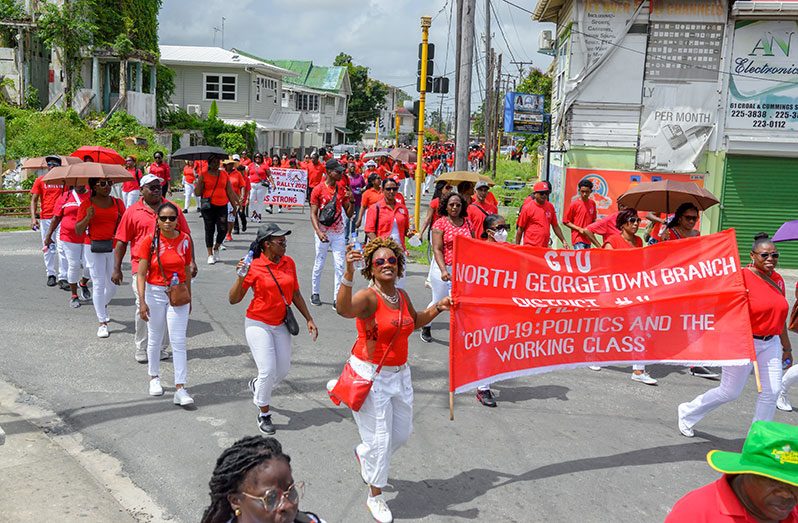MAY 1 is known in Guyana and other countries as Labour Day.
Since it is associated with the labour movement in Guyana, we sat down with the President of the Guyana Agricultural and General Workers Union (GAWU), Seepaul Narine, whose union is part of the World Federation of Independent Trade Unions (FITUG), to discuss the origin of Labour Day and its significance today.
According to Narine, in some countries of the world, Labour Day is commemorated on September 1, but in Guyana, it is celebrated on May 1 every year. He also explained that Labour Day began in the city of Chicago in the United States of America in the 1800s.
“The focus of Labour Day is about the improvement of workers’ [working conditions] and defending the rights of workers,” Narine told Pepperpot Magazine.
He explained that the focus of this year‘s celebration in Guyana is about a united labour movement and defending the rights of the workers.
“In Guyana, Labour Day celebrations began during the 1930s under the leadership of Hubert Nathaniel Critchlow and his British Guiana Labour Union (BGLU)… In 1958, May 1 was declared a national holiday by then Minister of Labour, Janet Jagan. Since that time, workers in Guyana have celebrated this day with marches through the streets of Georgetown and elsewhere, along with rallies addressed mainly by union leaders and others,”Narine explained.
The first May Day celebrations focused on workers took place on May 1, 1890, after its proclamation by the first international congress of socialist parties in Europe on July 14, 1889, in Paris, France, to dedicate May 1 every year as the “Workers Day of International Unity and Solidarity.” This is according to a document online.
Further, in an article published in the Guyana Chronicle dated May 3, 2020, it was noted that in these years, also, modern political parties began to be established and since Britain had decided to withdraw from its West Indian colonies, these political parties thought of themselves as succeeding the colonial power.
“These political parties thought they could strengthen themselves by co-opting the unions and they successfully did so to the extent that labour concerns in the unions very often became subordinated to political concerns.
In all strikes and labour protests against the employers, the state generally took the side of the employers and this was clearly seen in the sugar strikes in the 1940s and 1950s and these workers’ struggles in the sugar industry form an epic chapter in the Trade Union history of Guyana.
Though the worker struggles for better wages and working conditions have essentially the same characteristics in all countries, each country has its own peculiar manifestation of such struggles: Western Europe and the United States experienced their Industrial Revolutions in the 19th Century. Industrial production was done by the factory system, which employed large conglomerates of workers who mostly left their homes in the countryside to find employment in the fast-growing industrial towns.














